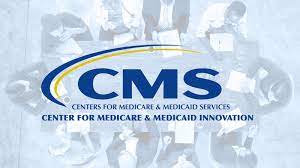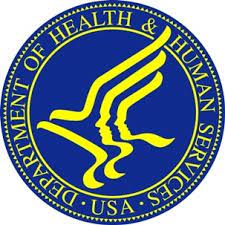Advancing Patient-Centered Approaches to Value-Based Payment
The Center for Medicare and Medicaid Innovation (CMMI) within the Centers for Medicare and Medicaid Services (CMS) is playing a significant role in advancing value-based or alternative payment models. In addition, many State health agencies and private payers are exploring similar changes. However, CMMI and other payers lack sound procedures and standards for patient-centeredness. By implementing the reforms described below, policy-makers can ensure that new payment models support value that matters to patients.
-
Process
-
Standards
-
Safeguards
<
>
- Create a Patient Advisory Panel at CMMI to oversee and ensure patient-centeredness in the agency’s work. CMMI lacks mechanisms to ensure new payment models are consistently developed and evaluated in ways that support patient-centered care. In order to ensure alternative payment models are aligned with care that patients value, CMMI’s work should be overseen by a Patient Advisory Panel that is tasked with creating criteria for patient-centeredness per CMMI’s statutory guidance, advising on the infrastructure needed for meaningful patient engagement, and determining patient-centered quality measures and techniques for shared decision-making. In addition, creation of new APMs should be guided by patients and physicians with specific expertise and experience in the clinical areas that the APM is addressing.
- Seek input from patients and caregivers early in the process of launching new demonstrations, and throughout the implementation and evaluation process. CMMI should establish and consistently apply a clear process for seeking input from patients, caregivers and other stakeholders early in the process of developing and testing new APMs. Patients, through advisory panels and through targeted strategies for input, should be positioned to provide guidance to CMMI on APM model designs under consideration, and to identify the key areas that would benefit from patient input, including APM development, implementation, related evaluation metrics and quality measures, and the use of decision-support tools such as care pathways.
- Improve the transparency of key APM design features and make available the results of APM evaluations. This includes more transparency in the requirements for patient engagement and evidence-based decision-making such as those relied on by Accountable Care Organizations and referenced in other recently announced APMs like the Cardiac Care Bundle demonstration and the Oncology Care Model. CMMI should also make transparent the results of APM evaluations regarding their impact on patient access and engagement, care quality, and cost.
- Establish criteria for patient-centeredness in CMMI payment models. Section 1115A of the Affordable Care Act calls for evaluation of payment models against “patient-centeredness criteria” – yet no such criteria have been formally developed or publicly released for comment by CMMI. Establishment of these criteria will provide a structured patient-focused framework to guide CMMI’s work. As specified in statute, demonstrations should be evaluated against these criteria. The Patient Advisory Committee should play a leading role in developing these criteria and ensuring they are applied to CMMI’s work.
- Identify patient-centered quality and performance measures for use in CMMI payment models. CMS should engage patients throughout the development and use of quality measures to ensure that quality measures reflect patient values and preferences and evolve with the standard of care. This includes patient input at the front end to identify gaps where measures need to be developed, and also at the back end to assess the ability of existing measures to reflect the care an individual patient receives, as well as to help determine if and when measures need to be updated or replaced.
- Develop standards for sound shared decision-making, and test shared decision-making through patient-focused models in primary care and specialty care settings. CMS included several activities to promote shared decision making in the Clinical Practice Improvement Activities Category of the Merit-Based Incentive Payment System (MIPS) score, an important first step to build on the Affordable Care Act’s provisions calling for a shared decision-making program. The Patient-Centered Outcomes Research Institute (PCORI) and others have done significant work to determine what types of shared decision-making tools work best in practice. Patient groups are prioritizing the development of shared decision-making tools, informed by their work to identify and reach patients from whom we can learn in real time what they value in health care. Patients deserve the ability to make informed choices about their care so that we are not wasting health care resources on care that does not work. We look forward to CMMI supporting and developing meaningful criteria for meaningful shared decision-making through additional APMs, including accountable care organizations (ACOs).
- Protect patients and people with disabilities by prohibiting application of cost-effectiveness and quality-adjusted-life-years (QALYs) as the basis for coverage and care decisions in APMs supported by CMMI. The use of QALYs and cost effectiveness assessments have long been precluded from use in public programs, as they conflict with the goals of the Americans with Disabilities Act (ADA) by de-valuing the life of people with disabilities and patients with serious and chronic conditions, and thereby impeding their access to certain treatments. Congress reaffirmed its commitment not to incorporate use of cost-per-QALY-based standards to determine treatment value when banning the use of QALYs in comparative clinical effectiveness research conducted by the PCORI. PIPC strongly opposes bypassing long-standing protections against use of cost-per-QALY assessments in public programs.
- Create robust mechanisms to protect quality and access for patients that are subject to CMMI’s demonstrations. In particular, mandatory APMs have the potential to drive patients to a narrow choice of providers and undermine the relationship between patients and their providers by creating financial incentives around pre-determined clinical decisions, driving a one-size-fits-all model of care. In this age of personalized and precision medicine, it is imperative that patients in CMMI demonstrations have access to protections such as a rapid appeals process that would allow for a more individualized approach to their care and to patient and consumer ombudsmen.
- Ensure patients are fully informed when they are subject to a CMMI test, and are made aware of mechanisms to opt out or seek assistance via safeguards like novel appeals mechanisms or a CMMI ombudsman.
- Ensure that any decision-support tools utilized in APMs (e.g., clinical decision-support and clinical pathways) meet criteria for patient-centeredness. For example, clinical decision support tools and clinical pathways, particularly those backed by financial incentives, must be validated and publicly available. Additionally, patients and people with disabilities must be engaged in the development of decision-support tools to enable effective integration of the specific outcomes that matter to patients in making decisions about the value of treatments for a particular condition and patient. Otherwise, certain long-term considerations and outcomes related to quality-of-life may be ignored.
PIPC Submits Comments to CMMI on Listening Session on Incorporating Beneficiary Perspectives into Model Testing, Implementation, and EvaluationIn a letter to the Center for Medicare and Medicaid Innovation (CMMI), the Partnership to Improve Patient Care (PIPC) offered comments on CMMI's Listening Session entitled "Incorporating Beneficiary Perspectives into Model Testing, Implementation, and Evaluation." PIPC Chair Tony Coelho applauded CMMI Director Liz Fowler for conducting the listening session, noting that PIPC looks forward to working with the Health Care Payment and Learning Action Network (LAN) to convey the importance of beneficiary perspectives and prioritize best practices that focus on patient-centered outcomes. PIPC also called on CMMI to establish a clear process for engagement with patients and people with disabilities.
|
Leading Patient & Disability Groups Call on Congress to Ensure Drug Price Negotiations Don't DiscriminateAlmost 50 leading groups representing patients, people with disabilities, and older Americans joined the Partnership to Improve Patient Care (PIPC) in sending a letter to Congressional Democratic leadership to ensure HHS factors in the concerns of patients and other affected stakeholders in any drug price negotiation policy.
|
Is the QALY Fit for Purpose?“Our aim in this paper is to assess whether the QALY is an adequate proxy measure of health value for the purposes of health care priority setting or whether the limitations inherent in how it is calculated and used in cost-utility analysis have the potential to be harmful. To do this we pose 3 questions. First, does the QALY accurately measure what it purports to measure? Second, does it value the health of all people equally and avoid the ethical and economic harms that arise when this is not the case? Third, does the QALY manage to fairly balance the needs of individuals and society as a whole? We argue that the QALY does not currently pass these 3 tests to an acceptable standard.” Click here to read the AJMC article.
|
PIPC Submits Joint Letter to CMMI Emphasizing Patient-Centered Payment ModelsPIPC joined 50 leading organizations representing patients and people with disabilities in submitting a letter to the Centers for Medicare and Medicaid Innovation (CMMI) urging the agency to act on their statute’s call for alternative payment models to be evaluated based on patient-centeredness criteria. PIPC Chairman Tony Coelho emphasized that when it comes to payment model development, CMMI must engage patients early in their work to develop and implement new models. Specifically, the letter offers three concrete steps to establish the criteria called for by CMMI’s statute: (1) Establish the “patient-centeredness criteria” mandated under Section 1115A of the Affordable Care Act, which requires evaluation of alternative payment models (APMs) against patient-centeredness criteria; (2) convene patient and consumer advisory panels for each of the Innovation Center models under development as well as those currently being implemented; and (3) define “informed decision-making” as a core criterion of patient-centeredness and a goal of each alternative payment model.
|
|
White Paper: A Roadmap to Increased Patient Engagement in CMMI
Health care stakeholders – ranging from patients, providers, and innovators – understand that the Center for Medicare and Medicaid Innovation (CMMI) must have mechanisms to ensure new payment models are consistently developed and tested in ways that support patient-centered care. In this White Paper, PIPC offers a roadmap for consistent patient engagement in the CMMI model design and testing process.
|
PIPC Letter to CMS on Achieving Patient-Centeredness in APMsPIPC Chairman Tony Coelho recently sent a letter to Centers for Medicare and Medicaid Services (CMS) providing input on how to achieve patient-centeredness in alternative payment models (APMs) based on feedback PIPC received related to proposed models. In the letter, Chairman Coelho provides a number of suggestions for bringing the voices of patients, people with disabilities, and their families to the discussion of how to advance patient-centered principles throughout an evolving healthcare system.
|
PIPC Comments to CMS on MACRA, APMsOn June 27, 2016, PIPC submitted comments on the implementation of the Medicare Access and CHIP Reauthorization Act of 2015 (MACRA). Since its founding, PIPC has been at the forefront of patient-centeredness in comparative effectiveness research (CER) – both its generation at the Patient-Centered Outcomes Research Institute (PCORI), and its translation into patient care. Having driven the concept of patient-centeredness in the conduct of research, PIPC looks forward to bringing the patient voice to the discussion of how to advance patient-centered principles throughout an evolving health care system.
|
PIPC Comments on Bipartisan Chronic Care Work Group Policy Options DocumentOn January 29, 2016, PIPC submitted formal comments to the Bipartisan Chronic Care Working Group of the Senate Finance Committee on their recently proposed policy options document. PIPC recommendations include creating avenues for stakeholder feedback, and specifically for CMMI to create a Patient Advisory Panel to help ensure new payment models are aligned with care that patients’ value.
|
PIPC Oncology Roundtable SummaryPIPC and the Cancer Support Community (CSC) convened a roundtable on July 8, 2015 on “Patient-Driven Health Care and Evidence in Oncology: Setting an Agenda.” Roundtable participants discussed the outcomes that matter to oncology patients and policies that would support high-quality, patient-driven cancer care.
|
Letter to HHS: 'Patients Deserve a Seat at the Table'On April 30, 2015, PIPC along with over 70 individual patients and patient organizations sent a letter to the Department of Health and Human Services (HHS) asking them to recognize patients as key stakeholders in the Better, Smarter, Healthier initiative and in the Health Care Payment Learning and Action Network. While most patient stakeholders agree that paying for “value” rather than “volume” will result in better outcomes for patients, the shift to value-based payment holds significant implications for the patient-centeredness movement and the related issues of patient access and the physician-patient relationship. That’s why it’s important that patients have a seat at the table in determining how these new payment models are implemented.
|
White Paper: Building a Patient-Centered Health SystemHealth care stakeholders – ranging from patients, providers, and innovators – understand that a value-based health care system that truly supports advancements in personalized medicine must be built on a foundation of patient-centeredness. In this White Paper, PIPC examines how we can provide high-quality care in a manner that is both beneficial to the individual patient and sustainable by incorporating patient-centered principles throughout the building blocks of our health care system.
|
Patient-Centered Healthcare ResourcesPIPC is working to advance President Obama’s vision for personalized and precision medicine by gathering, organizing and sharing links to a variety of patient-centered resources offered by leading patient groups. These patient resources are intended to inform the development and implementation of new payment models, quality measures and shared decision-making tools. Hopefully, making patient resources accessible will facilitate more direct engagement of patients and people with disabilities. It is our hope that this information helps all health care stakeholders identify resources for their work to advance patient-centeredness in health care.
|












